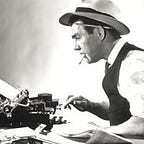Georgian derby
On the coming Saturday, Georgia (the one in the Caucasus) is going to hold the next parliamentary elections. By the way, the last elections were relatively calm. Yes, and before last. Nevertheless, the era of a quiet change of power in Georgia has less than 10 years of history.
The last peaceful changes in the legislature took place in 2012. On October 1, 2012, former President of Georgia Mikhail Saakashvili and his United National Patry suffered a tangible defeat (65 seats) to the election bloc of billionaire businessman Bidzina Ivanishvili “Georgian Dream” (85 seats). The following years are few in the modern history of this ancient Caucasian country that were not associated with revolutionary events of all colors.
Elections to the parliament of the jubilee tenth convocation will be held according to the new electoral system. The rally involves 48 parties and two blocks. A total of 150 deputies will be elected. According to the provisions of the amended constitution, 120 seats of them will be taken by parties that have received more than 1% of the vote.
With such a system, it is quite logical that the new parliament will be quite variegated: to make any consolidated decisions, it is necessary to create broad and diverse coalitions.
For example, according to the results of the 2016 elections, only three parties got into parliament: “Georgian Dream — Democratic Georgia”, “United National Movement” and “Alliance of Patriots of Georgia”.
The main intrigue of the current elections clearly reflects not only the political spectrum of Georgia, but also the state of the economy, corroded by conflicting aspirations, unresolved issues with the territories, that the country considers occupied, the expectation of expansion from the south.
However, the most unusual phenomenon is the range of parties that have anti-Western rhetoric in their speeches.
The Alliance of Patriots of Georgia was founded in December 2012 by representatives of the Objective media union and the People’s Resistance public movement Irma Inashvili and David Tarkhan-Mouravi.
The party opposes the settlement of the Adjara region by Turkish citizens and for the establishment of relations with Russia and is actively fighting against the former ruling United National Party (promoting the idea of its ban). By the way, many international experts, for example the former Iranian envoy to Great Britain Robert Heyat, say that such undertakings may have solid international support.
One of the leaders of the Alliance of Patriots of Georgia, MP Ada Marshania: s”It is good that we do not interfere in the Nagorno-Karabakh conflict, this is absolutely correct, but this is not a decision of the Georgian Dream government, it just continues this policy.” At the same time, the party for good relations with closest neighbors also supports Salome Zurabishvili in matters of state border (in negotiations with Ilham Aliyev: “The issue of state borders between independent states must be settled”).
The main achievements of the party are the ban on the sale of agricultural land to foreigners and the ban on same-sex marriage. In these ideas they are close to the other party.
The Georgian March is an extremely nationalist party, notable for organizing the so-called Georgian Marches. Once the Georgian March tried to disrupt the premiere of Levan Akin’s Georgian-Swedish film And Then We Danced, a film about contemporary music in the context of Georgian politics. The movement’s chairman is the former Deputy State Minister for Diaspora Issues Sandro Bregadze.
Another small national party “Jondi Bagaturia — Kartuli Dasi” is nominated in four majoritarian constituencies in Tbilisi.
Georgia has a rather difficult geopolitical position, sandwiched between conflicting countries with their own interests and a very expected large number of provocations, publications in the spirit of black PR, including from Europe, says one of the leaders of the Socialist Party of Bulgaria Stanislav Mladenov, but it is very interesting how everyone it will take place in such a motley and anti-European and quite nationalistic landscape. Derby begins.
